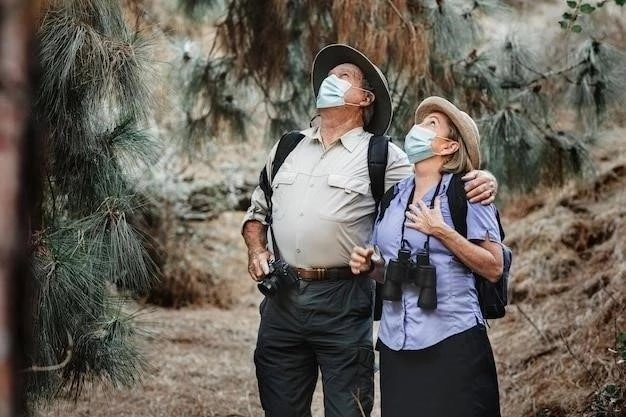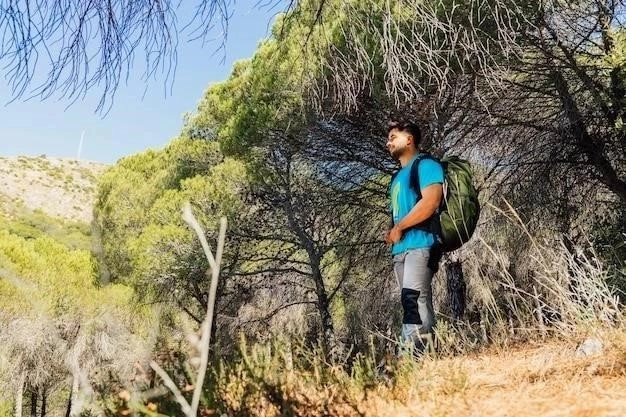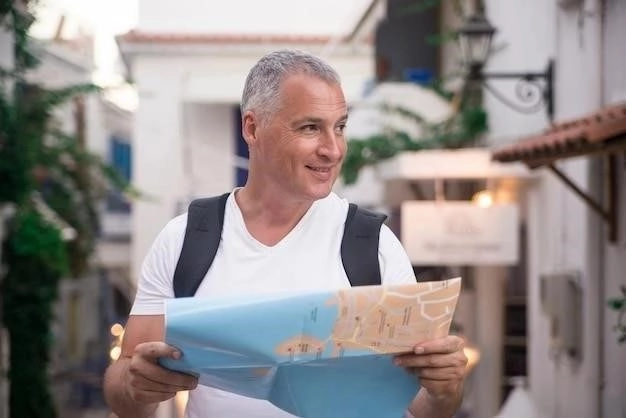Nestled along the West African coast, The Gambia, fondly known as “The Smiling Coast of Africa,” captivates visitors with its golden beaches, vibrant culture, and abundant wildlife. This small nation, enveloped by Senegal, boasts a unique charm derived from its blend of tradition and modernity.
Planning Your Trip
A well-structured itinerary is key to unlocking the treasures of The Gambia. Before embarking on your journey, consider these essential planning tips:
Time Your Adventure
The Gambia enjoys a tropical climate with distinct dry and wet seasons. The dry season, spanning from November to May, offers ideal beach conditions and optimal wildlife viewing opportunities. Conversely, the wet season, from June to October, sees lush landscapes but potential travel disruptions.

Visa Essentials
Citizens of most countries can obtain a visa upon arrival in The Gambia. However, it’s crucial to verify the specific requirements based on your nationality to ensure a seamless entry process.
Financial Prudence
The Gambian Dalasi (GMD) is the official currency. Credit cards are accepted in major establishments, but carrying local currency is advisable, especially when venturing beyond urban areas. ATMs are readily available in cities and towns.
Health and Safety First
Consult your healthcare provider regarding recommended vaccinations and necessary precautions. Travel insurance is highly recommended to mitigate any unforeseen medical expenses or travel disruptions. Pack essentials like insect repellent, sunscreen, and a basic first-aid kit.
Embrace Sustainable Travel
Engage in responsible tourism practices to minimize your environmental impact and support local communities. Opt for eco-friendly accommodations, respect wildlife and their habitats, and engage in meaningful cultural exchanges.
Visa Requirements
Ensuring you meet The Gambia’s entry requirements is paramount for a smooth travel experience. Regulations can vary depending on your nationality, so meticulous research is essential.
Visa-Free Entry
Citizens of numerous countries, primarily within the Economic Community of West African States (ECOWAS), enjoy visa-free entry into The Gambia for a specified period. This typically ranges from 90 to 180 days, depending on nationality. It’s crucial to confirm your eligibility and the permitted duration of stay with The Gambian embassy or consulate in your home country.
Visa on Arrival
Nationals of many countries worldwide can obtain a visa upon arrival in The Gambia. This convenient option allows travelers to acquire their visa at the port of entry, be it Banjul International Airport or various land borders. However, specific conditions apply, including presenting a valid passport with at least six months of remaining validity, proof of onward travel, and sufficient funds to cover the duration of their stay.
Visa Acquisition Prior to Travel
Citizens of certain countries are required to obtain a visa before traveling to The Gambia. This process involves contacting the nearest Gambian embassy or consulate to submit an application, supporting documents, and the applicable visa fee. It’s advisable to initiate this process well in advance of your intended travel dates to allow ample processing time.
Always consult the official website of The Gambia Immigration Department or liaise with the relevant diplomatic mission for the most up-to-date visa requirements and application procedures tailored to your specific nationality. This proactive approach will ensure a hassle-free entry into The Gambia.
Best Time to Visit
The Gambia, with its tropical climate, offers year-round appeal, but the optimal time to visit depends on your priorities and preferred experiences.
Dry Season (November to May): Prime Time for Exploration
The dry season emerges as the most popular time to visit The Gambia. From November to May, the country basks in sunshine with low humidity, making it ideal for beach holidays, wildlife encounters, and cultural explorations. Temperatures hover around a pleasant 30°C (86°F) during the day, dipping slightly in the evenings.
During this period, the Gambia River, the country’s lifeblood, recedes, revealing abundant wildlife along its banks. Birdwatchers flock to spot migratory species, while nature enthusiasts revel in game drives and river excursions. This is also the peak season for cultural festivals, offering vibrant glimpses into Gambian traditions.
Wet Season (June to October): Lush Landscapes, Potential Showers
The wet season, while characterized by occasional rainfall and higher humidity, paints The Gambia in verdant hues. From June to October, the country comes alive with lush landscapes, making it an excellent time for birdwatching and experiencing the vibrancy of nature’s rejuvenation.
While rainfall can be unpredictable, it typically arrives in short, intense bursts, often in the afternoons. The upside? Lower accommodation rates and fewer crowds. However, some river excursions and wildlife viewing opportunities might be limited due to the river’s higher water levels.
Ultimately, the best time to visit The Gambia hinges on your individual preferences and tolerance for weather variations.
Health and Safety
Prioritizing your well-being is paramount when traveling to The Gambia. Taking proactive measures regarding health and safety will ensure a smooth and enjoyable journey.
Health Considerations
Consult your healthcare provider well in advance of your trip to discuss recommended vaccinations and necessary precautions. Routine immunizations, such as hepatitis A and typhoid, are generally advised. Malaria is present in The Gambia, so taking antimalarial medication as prescribed by your doctor is crucial. Additionally, pack a well-stocked first-aid kit containing essentials like pain relievers, antihistamines, and diarrhea medication.
The Gambia’s tap water is not considered potable, so stick to bottled water for drinking and brushing your teeth. Be cautious about consuming food from street vendors to minimize the risk of foodborne illnesses.
Safety Tips
The Gambia is generally a safe country for travelers, but exercising common-sense precautions is always prudent. Be mindful of your belongings, especially in crowded areas, and avoid displaying expensive jewelry or large sums of cash. It’s advisable to use official taxis rather than hailing them on the street, and negotiate fares upfront.
While The Gambia is known for its hospitality, it’s essential to respect local customs and traditions. Dress modestly, particularly when visiting religious sites, and refrain from public displays of affection.
Before embarking on your journey, register your travel plans with your home country’s embassy or consulate. This enables them to provide assistance if needed.
By adhering to these health and safety guidelines, you can enjoy a worry-free and fulfilling Gambian adventure.
Getting There and Around
Navigating The Gambia’s transportation network is relatively straightforward, with options to suit various budgets and preferences.
Arrival by Air
Banjul International Airport (BJL), situated near the capital city of Banjul, serves as The Gambia’s primary international gateway. Numerous airlines offer direct flights from major cities in Europe, Africa, and beyond. Upon arrival, taxis and private airport transfers are readily available for onward travel to your chosen destination.
Internal Travel
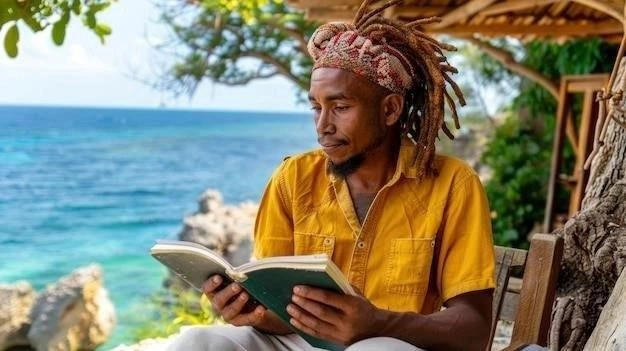
Within The Gambia, diverse transportation modes await, each offering a unique perspective of the country:

Taxis:
Taxis, easily identifiable by their green color, are a ubiquitous sight in urban areas. Ensure the driver uses the meter or agree on a fare before commencing your journey. For longer distances, consider negotiating a fixed price.
Bush Taxis (Gele-Geles):
For a more adventurous experience, hop aboard a “gele-gele,” a shared taxi typically a seven-seater van. These are a cost-effective option for traveling between towns and villages, but be prepared for crowded and less comfortable rides.
Ferries:
Ferries provide a scenic way to traverse the Gambia River. The main ferry service operates between Banjul and Barra, offering stunning views of the river and its bustling activity.
Car Rentals:
While car rentals are available, they are generally not recommended for first-time visitors. Road conditions can be challenging, and driving practices might differ from what you’re accustomed to.
By embracing the diverse transportation options available, you can traverse The Gambia’s varied landscapes and immerse yourself in its vibrant culture.
Accommodation
The Gambia presents a diverse range of accommodation options, catering to various budgets and preferences. From luxurious beachfront resorts to charming guesthouses and budget-friendly lodges, you’ll find a comfortable base for your Gambian adventure.
Coastal Retreats
Along The Gambia’s sun-kissed coastline, a string of resorts beckons travelers seeking relaxation and recreation. These establishments often boast private beaches, swimming pools, restaurants, and a range of amenities, including spas and water sports facilities.
Boutique Guesthouses
For a more intimate and personalized experience, consider boutique guesthouses. Often family-run, these accommodations offer a warm and welcoming ambiance, allowing you to immerse yourself in local hospitality.
Eco-Lodges and Nature Reserves
Venture beyond the coast, and you’ll discover eco-lodges nestled within nature reserves or alongside the Gambia River. These accommodations provide a unique opportunity to connect with nature while supporting sustainable tourism practices.
Self-Catering Apartments and Villas
For travelers seeking independence and flexibility, self-catering apartments and villas offer the comforts of home. These options are ideal for families or groups seeking spacious accommodations with cooking facilities.
Budget-Friendly Lodges
Budget-conscious travelers will find a variety of guesthouses, hostels, and basic lodges offering affordable accommodations without compromising on comfort.
It’s advisable to book accommodations in advance, especially during the peak season, to secure your preferred choice. When selecting your accommodation, consider factors such as proximity to attractions, desired amenities, and overall ambiance to ensure a comfortable and enjoyable stay in The Gambia.
Food and Drink
Embark on a culinary journey through The Gambia, where vibrant flavors and fresh ingredients combine to tantalize your taste buds. Influenced by West African, European, and Middle Eastern traditions, Gambian cuisine offers a delightful fusion of tastes.
Savoring Local Delights
Delve into the heart of Gambian cuisine with “Domoda,” a rich peanut stew often served with meat or fish, accompanied by fluffy rice. Another staple is “Benachin,” a flavorful one-pot dish combining rice, fish, vegetables, and aromatic spices. For a taste of the sea, indulge in fresh grilled fish, often seasoned with herbs and spices, a testament to The Gambia’s coastal bounty.
Street Food Adventures
Embrace the vibrancy of Gambian street food, where vendors offer a tempting array of snacks and light meals. Sample “Akara,” black-eyed pea fritters, or “Niffin,” savory meat skewers. For a refreshing treat, try freshly squeezed fruit juices made from mangoes, papayas, and other tropical fruits.
International Flavors
In addition to traditional Gambian fare, you’ll find restaurants serving international cuisine, catering to diverse palates. From Italian trattorias to Lebanese restaurants and Indian curry houses, options abound to satisfy your cravings.
Beverage Choices
Quench your thirst with refreshing local beverages like “Wonjo,” a vibrant hibiscus drink known for its tart flavor. Locally brewed ginger beer, often homemade, offers a spicy kick. International beers, wines, and spirits are readily available in most restaurants and bars.
As you explore The Gambia’s culinary landscape, remember to prioritize food safety. Opt for reputable establishments and exercise caution when consuming food from street vendors. With its diverse culinary offerings, The Gambia promises a flavorful and satisfying gastronomic experience.
Things to Do
The Gambia, beyond its alluring coastline, unveils a tapestry of experiences catering to diverse interests. From immersing yourself in its rich culture and history to encountering wildlife in their natural habitat, adventure awaits at every turn.
Embrace the Rhythms of Culture
Delve into The Gambia’s vibrant cultural heritage with a visit to Juffureh, a UNESCO World Heritage Site steeped in history. Explore the ruins of a former slave trading post and gain a poignant understanding of the country’s past. For a taste of local life, wander through the bustling markets of Banjul, where colorful fabrics, aromatic spices, and handcrafted goods paint a sensory spectacle.
Embark on a Wildlife Safari
Venture into The Gambia’s renowned national parks and reserves for unforgettable wildlife encounters. Kiang West National Park, a haven for birdwatchers, boasts over 300 avian species, including the majestic African Fish Eagle. At River Gambia National Park, embark on a boat safari to spot chimpanzees in their natural habitat.
Cast a Line for a Memorable Catch
For avid anglers, The Gambia offers exceptional fishing opportunities. Cast your line in the Gambia River, teeming with barracuda, snapper, and other prized catches. Alternatively, embark on a deep-sea fishing expedition for a chance to reel in marlin, tuna, and sailfish.
Soak Up the Sun on Pristine Beaches
Unwind on The Gambia’s golden beaches, where azure waters gently lap the shore. Savor the serenity of Kotu Beach, renowned for its tranquility, or embrace the lively atmosphere of Kololi Beach, where beach bars and restaurants offer front-row seats to stunning sunsets.
Whether you seek cultural immersion, wildlife encounters, or simply relaxation amidst picturesque surroundings, The Gambia promises an enriching and unforgettable travel experience.
Beaches

The Gambia’s coastline, a sun-kissed stretch of golden sands meeting the azure waters of the Atlantic Ocean, is a haven for beach lovers. From lively stretches brimming with activity to secluded coves promising tranquility, there’s a perfect beach for every traveler.
Kotu Beach: Tranquility and Natural Beauty
Embrace serenity at Kotu Beach, a tranquil haven where gentle waves lap the shore and palm trees sway in the breeze. This pristine stretch of sand is ideal for leisurely strolls, sunbathing, and swimming in the inviting waters.
Kololi Beach: Vibrant Energy and Entertainment
For a more energetic beach experience, head to Kololi Beach, The Gambia’s bustling tourism hub. Here, beach bars and restaurants offer front-row seats to stunning sunsets, while vendors showcase local crafts and souvenirs.

Cape Point Beach: Where Luxury Meets Nature
Indulge in luxury at Cape Point Beach, home to upscale resorts and pristine sands. Enjoy water sports, relax by the pool, or simply soak up the sun in this exclusive enclave.
Bijilo Beach: A Haven for Nature Enthusiasts
Combine beach relaxation with wildlife encounters at Bijilo Beach, bordering the Bijilo Forest Park. Take a break from sunbathing to explore the forest’s trails, home to monkeys, birds, and other fascinating creatures.
Sanyang Beach: A Secluded Escape
Escape the crowds at Sanyang Beach, a secluded haven renowned for its untouched beauty. This pristine stretch of sand is perfect for those seeking solitude and a true escape from the hustle and bustle.
Whether you seek vibrant energy or serene tranquility, The Gambia’s beaches offer a slice of paradise for every traveler.
Nature and Wildlife
Beyond its captivating coastline, The Gambia reveals a world of natural wonders, where lush landscapes and diverse ecosystems provide sanctuary to a remarkable array of wildlife. From dense forests teeming with primates to wetlands echoing with the calls of exotic birds, nature enthusiasts will find themselves captivated.
Kiang West National Park: A Birdwatcher’s Paradise
Embark on a journey through Kiang West National Park, a haven for birdwatchers and nature enthusiasts. This expansive park, encompassing diverse habitats, boasts over 300 avian species, including the iconic African Fish Eagle, soaring above the Gambia River.
River Gambia National Park: Chimpanzee Encounters
Venture into River Gambia National Park, where the Gambia River meanders through a tapestry of forests and wetlands. This park offers a unique opportunity to encounter chimpanzees in their natural habitat, observing their fascinating social interactions.
Abuko Nature Reserve: A Pocket of Biodiversity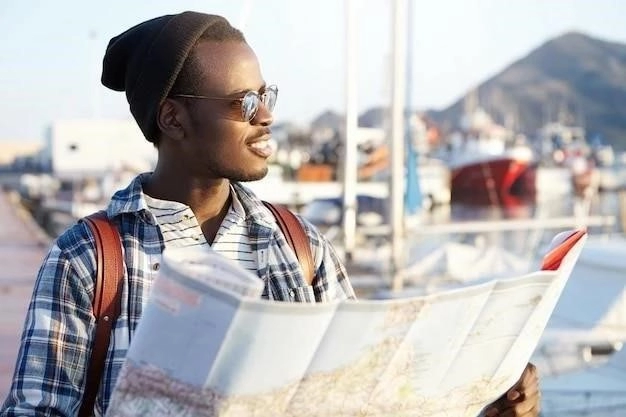
Discover a sanctuary of biodiversity at Abuko Nature Reserve, a compact yet remarkable reserve close to the capital. Wander through lush trails, encountering monkeys swinging through the canopy, colorful birds flitting among the foliage, and reptiles basking in the sun’s warmth.
Bijilo Forest Park: Nature Walks and Coastal Views
Combine a beach escape with a nature adventure at Bijilo Forest Park, bordering the popular Bijilo Beach. Explore well-maintained trails winding through the forest, spotting monkeys, birds, and other wildlife along the way. Ascend to higher vantage points for panoramic views of the coastline.
Whether you seek out iconic species or simply immerse yourself in the sights and sounds of nature, The Gambia’s diverse ecosystems offer a captivating glimpse into the wonders of the natural world.
Culture and History
The Gambia’s cultural tapestry is as vibrant as its landscapes, woven with ancient traditions, warm hospitality, and a resilience shaped by its history.
Unveiling a Complex Past
Journey through The Gambia’s past, marked by its strategic location along the transatlantic slave trade route. Visit James Island and its remnants of Fort James, a UNESCO World Heritage Site, serving as a poignant reminder of this dark chapter. The Gambia National Museum in Banjul offers insights into the country’s pre-colonial history, showcasing artifacts and exhibits that shed light on its rich cultural heritage.
Embracing the Rhythms of Tradition
Immerse yourself in the vibrancy of Gambian culture through its music and dance. Attend a traditional drumming and dance performance, where the infectious rhythms of the “djembe” and the graceful movements of dancers will leave you spellbound.
Exploring Local Life and Crafts
Venture into The Gambia’s bustling markets, vibrant hubs of trade and social interaction. Wander through the stalls of Albert Market in Banjul or Serrekunda Market, where vendors showcase colorful fabrics, intricate wood carvings, and other handcrafted goods. Engage with the locals, known for their warmth and hospitality, and gain insights into their daily lives.
Embrace the opportunity to delve deeper into The Gambia’s culture and history by engaging with local guides who can provide firsthand accounts and unique perspectives on this captivating nation.
Money and Costs
Understanding The Gambia’s currency and typical costs is essential for planning a budget-conscious and enjoyable trip.
Currency Considerations
The Gambian Dalasi (GMD) is the official currency of The Gambia. While major credit cards are accepted in larger hotels, restaurants, and some shops, carrying local currency is advisable, especially when venturing beyond urban areas.
Cash is King
Cash transactions are prevalent in The Gambia, particularly in local markets and for transportation. ATMs are available in major towns and cities, but it’s wise to withdraw sufficient cash, especially if traveling to more remote areas.
Managing Your Budget
The cost of travel in The Gambia can vary depending on your travel style and preferences. Accommodation options range from budget-friendly guesthouses to luxurious resorts. Local transportation, such as bush taxis and ferries, is very affordable, while taxis can be more expensive, especially for longer distances.
Sample Costs (Approximate):
- Budget meal: GMD 100-250
- Mid-range restaurant meal: GMD 300-600
- Bottle of water: GMD 25-50
- Bush taxi (short distance): GMD 15-30
- Taxi (airport to city center): GMD 500-800
It’s advisable to negotiate prices for goods and services, especially in markets and with taxi drivers. By planning your budget wisely and embracing the availability of affordable options, you can enjoy a fulfilling Gambian experience without breaking the bank.
Language
Navigating the linguistic landscape of The Gambia is relatively straightforward, as English enjoys official language status and serves as the primary medium for commerce, education, and administration.
English: Your Gateway to Communication
Whether you’re engaging in conversations with locals, reading official documents, or ordering food at a restaurant, English will be widely understood and spoken. While urban areas exhibit a higher concentration of English speakers, even in more rural settings, you’ll likely find someone who can communicate in English.
Embracing Local Dialects
Beyond English, The Gambia boasts a rich tapestry of local languages, reflecting its diverse ethnic groups. Mandinka holds the distinction of being the most widely spoken indigenous language, followed by Wolof and Fula.
Enhancing Your Cultural Exchange
While English will suffice for most interactions, learning a few basic phrases in Mandinka or other local dialects can greatly enhance your cultural exchange. Simple greetings like “Nanga def?” (How are you?) or “Jerejef” (Thank you) will be met with smiles and appreciation.

Don’t hesitate to approach locals, known for their friendliness and willingness to assist, if you encounter any language barriers. With a combination of English and a touch of local phrases, you’ll find communication in The Gambia to be an enriching and rewarding aspect of your travel experience.



